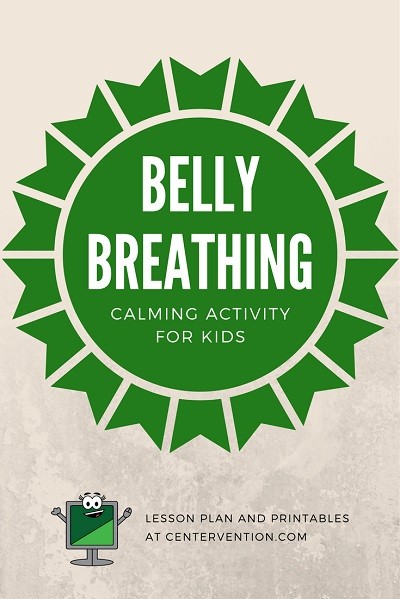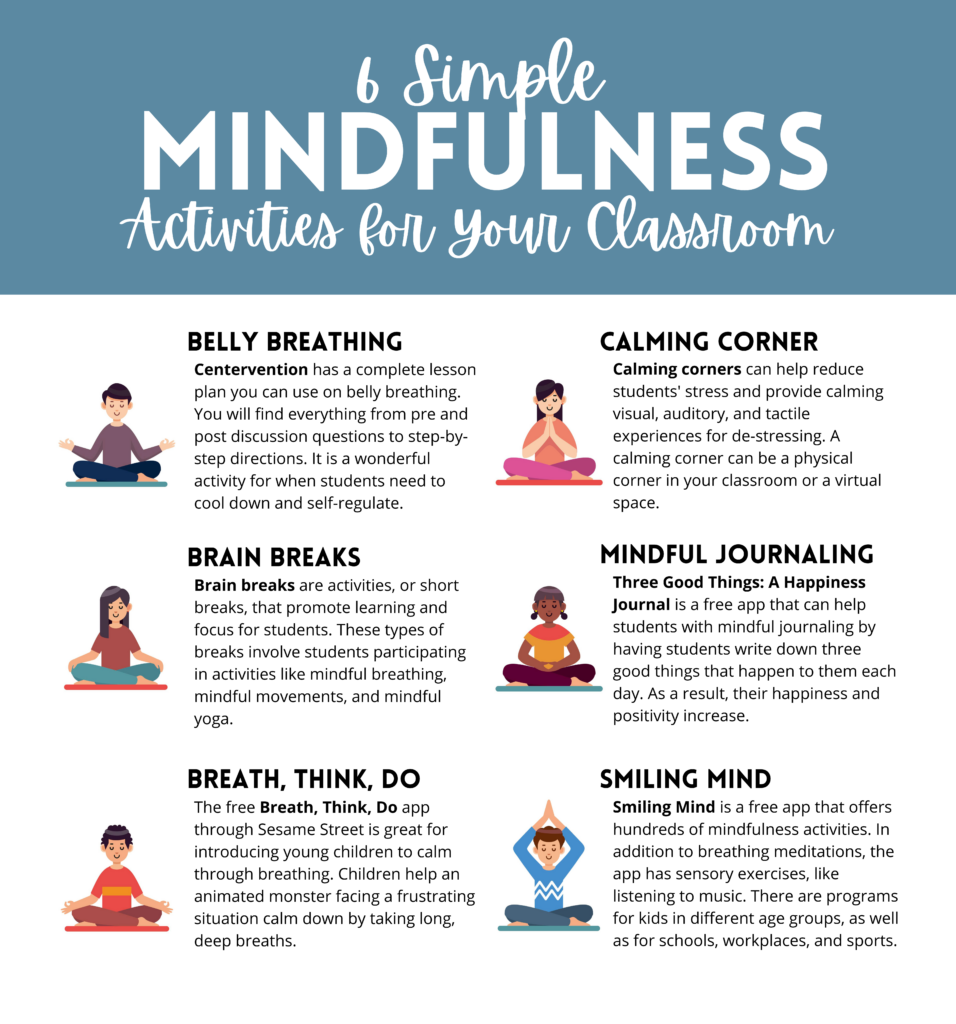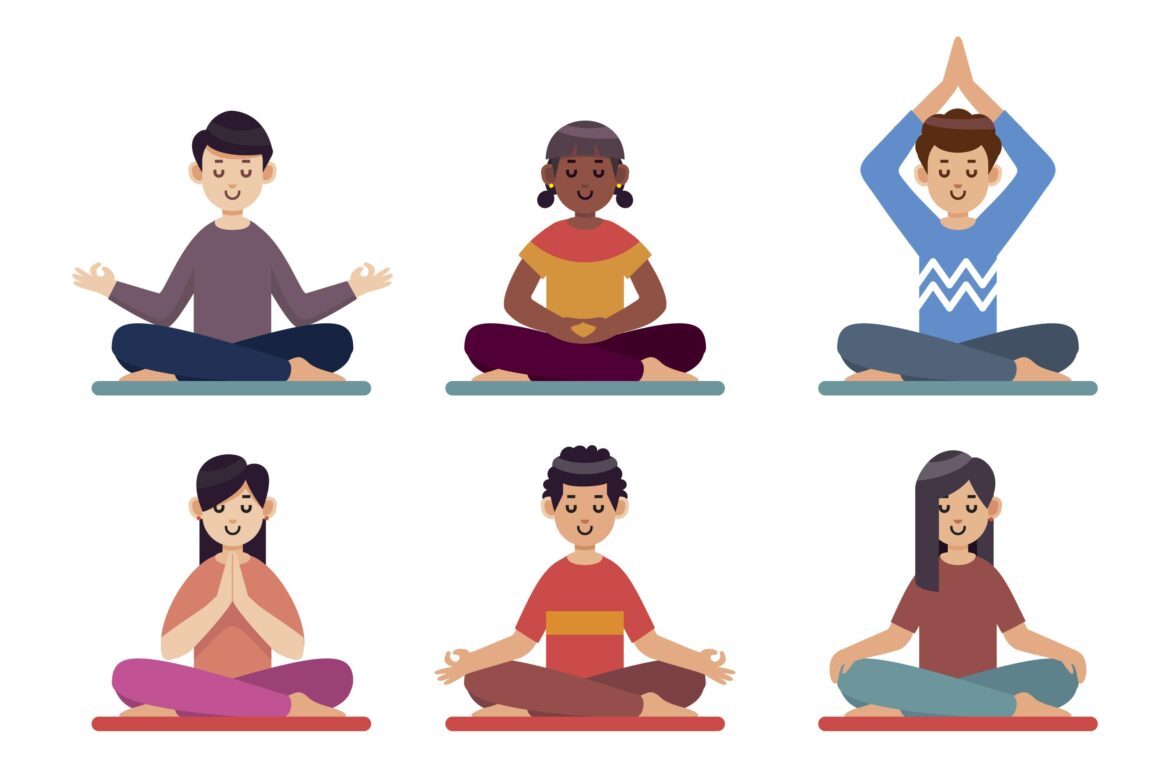Incorporating mindfulness activities in the classroom is powerful, and it can also be easy to do. If you are wondering where to start with mindfulness in the classroom, be sure to check out some of the activities below. No matter how you choose to implement mindfulness, the goal is to help your students learn they can use mindfulness anytime they need to refocus their attention or reset their thoughts.
What Is Mindfulness?
Mindfulness is often defined as living in the moment without judgment. But many of us don’t always function that way. I know I don’t.
When a thought pops into our heads, it’s usually colored by what has happened in the past or what we think might happen in the future. Even if the thought isn’t accurate, we may react to it as if it were.
The practice of mindfulness can help us stay focused on the present. In addition to calming us down, mindfulness can teach us to view our thoughts in a more neutral manner.
How Can Students Practice Mindfulness?

There are many activities and resources that can help your students practice mindfulness. Check some of them out below.
1. Belly Breathing
Belly Breathing is a great activity for students to practice remaining calm during stressful situations. Centervention has a complete lesson plan you can use on belly breathing. You will find everything from pre and post discussion questions to step-by-step directions. It is a wonderful calming activity to use when students need to cool down or need an emotion regulation strategy.
2. Brain Breaks
Brain breaks are activities, or short breaks, that promote learning and focus for students. These types of breaks involve students participating in activities like mindful breathing, mindful movements, and mindful yoga. Check out these resources you can use to get your students (and yourself!) up and moving.
3. Breathe, Think, Do
This free Sesame Street app isn’t specifically for meditation, but it’s great for introducing very young children to the concept of calming down through breathing. The app teaches kids the “Breathe, Think, Do” method. Kids help an animated monster facing a frustrating situation calm down by taking long, deep breaths. The app is free and available for Android and iOS.
4. Calming Corner
As mentioned in this blog, calming corners can help reduce students’ stress and provide calming visual, auditory, and tactile experiences for students to de-stress. A calming corner is a place that can help your students prepare to learn and focus throughout the day. The calming corner can be a physical corner in your classroom or a virtual space.

5. Mindful Journaling
When a student feels overwhelmed or anxious, encourage them to practice mindful journaling. Mindful journaling gives students an opportunity to cope with and manage their emotions in a healthy way. The Three Good Things: A Happiness Journal app can help students with mindful journaling by having students write down three good things that happen to them each day. As a result, their happiness and positivity increase. There is a gamification element to the app to encourage engagement, and it is free and available for iOS.
6. Smiling Mind App
Smiling Mind offers hundreds of mindfulness activities for all ages. In addition to breathing meditations, the app has sensory exercises, like listening to music. There are programs for kids in different age groups, as well as for schools, workplaces, and sports. The app also keeps track of when kids meditate. Also, it’s free and available for Android and iOS.

Additional Resources
The more strategies students have for handling emotions, the more equipped they will be to tackle challenges. For other ways to incorporate the critical components of social-emotional learning in your classroom, check out these resources:
- Social-Emotional Learning Activity Templates for Google Jamboard (blog)
- Gratitude Activities for Your Classroom (blog)
- Six Strategies for Building Empathy in the Classroom (blog)
- Using Chrome Extensions to Take Brain Breaks (blog)
- Social and Emotional Learning (online, self-paced course)

